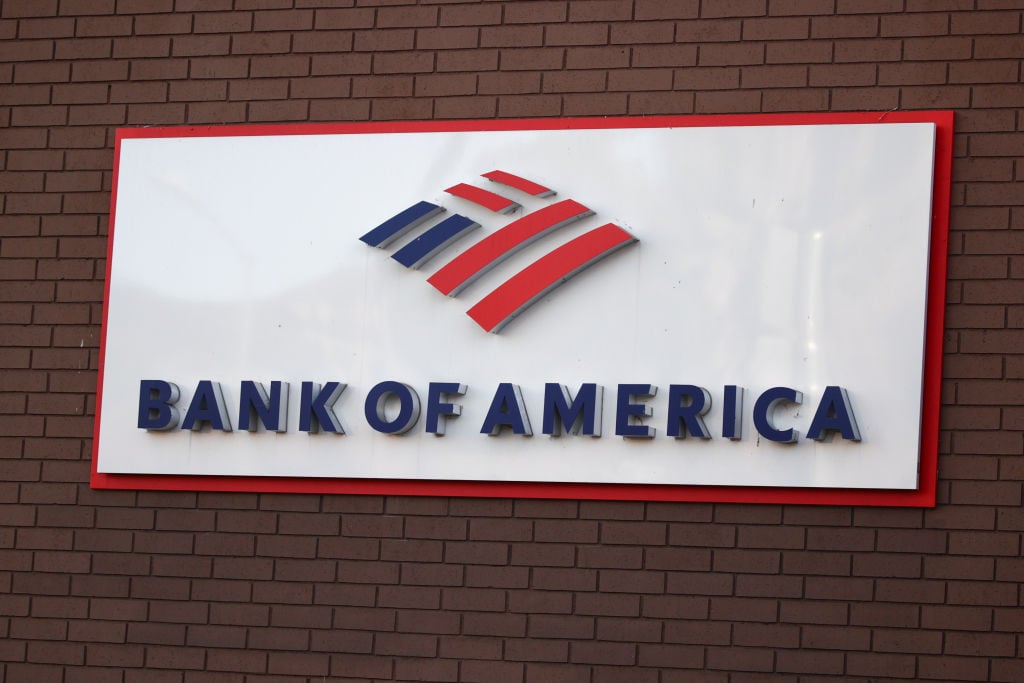This article is part of our Rising Star Portfolios series. You can read about the Dada Portfolio here.
It's been a bumpy ride, but mostly a good one, for Bank of America (NYSE: BAC) shorts like the Dada Portfolio. And by "good," we mean "down."
Since the time the Dada Portfolio bet B of A would fall, investors have become particularly wary of the megabank:
|
Security |
Return Since Dec. 21, 2010 |
|---|---|
|
Bank of America |
(48%) |
|
Citigroup (NYSE: C) |
(40%) |
|
Wells Fargo (NYSE: WFC) |
(25%) |
|
JPMorgan Chase (NYSE: JPM) |
(15%) |
Source: Yahoo! Finance.
A portion of the performance disparity owes to operational issues. Of the four, B of A is the only bank that produced a slight operating loss over the past 12 months, mostly because of lower interest and non-interest revenue and rising employee compensation. Neither it nor Citigroup has yet gotten the go-ahead from regulators to reinstate meaningful dividends.
But the main part of our thesis was that investors underappreciated the extent of Bank of America's exposure to liabilities from potentially improper securitization practices and alleged foreclosure fraud, compounded by its disastrous acquisition of Countrywide.
Countrywide has been a pinata for litigants including Pimco, the New York Fed, BlackRock (NYSE: BLK), and now AIG (NYSE: AIG). The latter company claims that Countrywide misrepresented the quality of loans it sold them.
Bank of America thought it had put much of these issues behind it with a fast settlement. David Dayen notes the New York attorney general's intervention into Bank of America's attempted settlement. The AG's allegations span the gamut of the potential problems we identified in our initial short, including:
- Countrywide and the trustee (Bank of New York Mellon (NYSE: BK)) failed to ensure the quality of the mortgage-backed securities that were sold to investors.
- The mortgage notes, the legal IOUs that investors need to foreclose, were never transferred to the trusts. This would effectively mean that the mortgage-backed securities investors thought they were buying, were not, in fact, mortgage-backed.
After its 48% decline, Bank of America now trades for 0.6 times its tangible book value of $125 billion. If a reasonable multiple for a low-to-medium-quality large bank is around 1.2 times, then the stock is priced for a loss on the magnitude of $60 billion in book value beyond what the bank has provisioned. Is this plausible?
Absolutely, given the scope of the bank's legal and operational difficulties. Just as a side note, if such a loss were to occur all at once today, the bank would be left with a leverage ratio of 22-to-1 -- not exactly comforting. Maybe someone should have insisted that the bank raise more capital during those stress tests, raise more capital soonish, or rein in more of its employee compensation. Good thing it wasn't allowed to restore its dividend.
The losses could also be smaller, or larger. It's incredibly uncertain. When the stock was twice as high as it is today, we were fairly confident that the market wasn't pricing in the bank's risky outlook. Today, the market is more fairly valuing Bank of America for its liabilities, so we will cover our position.
To keep up with all the top Foolish news and analysis about Bank of America, click here to add it to your watchlist.
This article is part of our Rising Star Portfolios series, where we give some of our most promising stock analysts cold, hard cash to manage on the Fool's behalf. We'd like you to track our performance and benefit from these real-money, real-time free stock picks. Click here to see all of our Rising Star analysts (and their portfolios). You can follow the Dada portfolio on Twitter @TMFDada.








